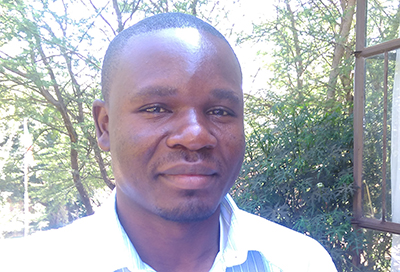Network organization of the tourist industry food value chain and its potential for organic food market, Tanzania
Shadrack Mbapila, PhD Tanzania
The objective of this study was to identify possibilities of linking organic producers with the market, particularly tourist hoteliers market as an alternative to export market. Linking producers to market was envisaged as one of the ways to boost organic production in the region, by increasing production and access to market. This would in turn increase the income of smallholder organic producers and improve their livelihoods.
The study found that, there were possibilities of linking smallholder organic producers with the tourist market (some were already accessing the market) and it also highlighted the challenges patterning the linkage, such as, limitations of locally made inputs and insecticides, limited consumers’ awareness on the demand side that resulted into no differentiation in prices received, for example, no organic mark/labels on organic vegetables in market. It also suggests to policy makers, NGOs and organic sector the important role of institutions in facilitating market access, input suppliers in ensuring sustainability in production, storage and processing facilities in reducing post-harvest losses and how they affect the sector growth in production.
The study has identified factors for low production and limitations to access the market for organic vegetables. These factors include, limited awareness to consumers and demand by tourist hotels, for example, reliability, sustainability, steady quantity and capacity to supply
The study is important as it highlights the challenges and opportunities for linkage, for example, opportunities such as closeness of producers to other actors and challenges, such as, limitations in production due to low input production. Organic production is beneficial for producers in the sense that, if the challenges found in the research will be addressed by policy makers, NGOs and organic sector actors, the access to market will be improved and boosts organic production.
The major gap in the study is on understanding the preference of tourists and demand for organic vegetables. As this study only focused on the tourist hotels, there is still a need to have direct interviews with tourists as it will inform us more on awareness and demand for organic products.

Figure: Conceptually what the study entailed.
More about the project

Shadrack J. Mbapila, PhD
Sokoine University of Agriculture- Tanzania
Enrolment date: April 2014
Main Supervisor: E. Lazaro
External Supervisors: Kostas Karantininis/Paul Kledal
Shadrack Mbapila graduated in November 2019. He is currently working as an agricultural research officer with a specialization of Agricultural Economist under the department of Farming System Research and Social Economics (FSR/SE) at Selian Agricultural Research Institute, Box 6024, Arusha. He is engaged in economic studies of the department (adoption, monitoring and impact assessment of agricultural technologies as well as supervision/conducting of data collecting surveys for baseline studies before a new technology is introduced). The activities cut across different departments at the research institute, such as Wheat and Barley, Bean, Weed Science, Soil and Environment, Plant Pathology to name a few.
Contact
Phone: +255 755 192 036 or +255 687 364 910
E-mail: mbapilas@yahoo.co.uk and/or smbapila@live.com and/or smbapila@gmail.com
Selian Agricultural Research Institute (SARI), Box 6024, Arusha